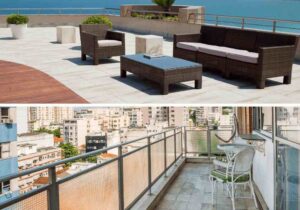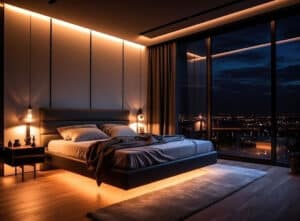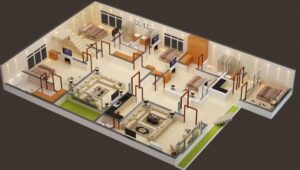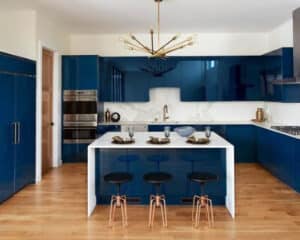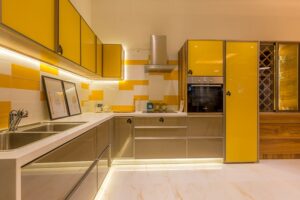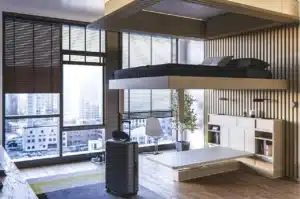5 Things To Know Before Designing A Modular Kitchen
Introduction
The concept of a modular kitchen has gained tremendous popularity in recent years. This modern approach to kitchen design offers convenience, functionality, and aesthetic appeal. Before embarking on the journey of creating your dream modular kitchen, there are crucial factors to consider. Designing A Modular Kitchen
Budgeting for Your Modular Kitchen
Setting a realistic budget is the first step in designing a modular kitchen. Various cost factors, including materials, appliances, and labor, contribute to the overall expense. By carefully assessing your financial capabilities and priorities, you can ensure value for your investment.
Understanding the Space
The size and layout of your kitchen play a pivotal role in the design process. Assessing available space helps in making informed decisions on the layout and utilization of vertical space. A well-thought-out spatial arrangement enhances both functionality and aesthetics.
Choosing the Right Materials
Selecting durable and aesthetically pleasing materials is essential for a successful modular kitchen. Consider the durability, maintenance requirements, and visual appeal of materials to ensure a kitchen that stands the test of time.
Appliances and Fixtures
Carefully choose essential appliances and fixtures that align with your cooking needs. Integration of smart technology enhances the kitchen’s efficiency and convenience. Prioritize quality fixtures for longevity and performance.
Lighting Strategies
Proper lighting is often underestimated in kitchen design. Combining natural and artificial lighting can create a visually appealing and functional space. Paying attention to lighting details contributes significantly to the overall atmosphere.
Hiring a Professional Designer
While DIY options exist, hiring a professional designer offers numerous advantages. Their expertise ensures a seamless design process, collaboration for customization, and adherence to safety and compliance standards.
Eco-Friendly Options
Consider incorporating sustainable materials and energy-efficient appliances in your modular kitchen. Minimizing the environmental impact aligns with the growing trend of eco-conscious living.
Future-Proofing Your Kitchen
Design your kitchen with adaptability in mind. Future-proofing involves considering adaptable designs, technological upgrades, and the potential resale value of your property.
Maintenance Tips
Regular maintenance is crucial for preserving the longevity of your modular kitchen. Follow cleaning and care guidelines, conduct regular inspections, and promptly address wear and tear to keep your kitchen in top condition.
Real-Life Examples
Explore case studies of successful modular kitchen designs for inspiration. Learn from real-life examples, including both triumphs and mistakes, to make informed decisions for your own project.
Common Pitfalls to Avoid
Underestimating space requirements, neglecting proper ventilation, and sacrificing function for aesthetics are common pitfalls to avoid in modular kitchen design. Learn from others’ experiences to sidestep these potential issues.
Expert Opinions and Insights
Gather insights from design professionals, user testimonials, and industry trends. Expert opinions provide valuable perspectives and keep you informed about the latest advancements in modular kitchen design.
DIY Options and Customization
While DIY options are available, carefully weigh the pros and cons. Tailoring the kitchen to your needs is essential, but striking a balance between customization and practicality is key.
Conclusion
In conclusion, designing a modular kitchen is an exciting journey that requires careful planning and consideration. By understanding budgeting, space, materials, and other crucial factors, you can create a kitchen that not only meets your needs but also enhances your living space.
FAQs
Is a modular kitchen more expensive than traditional kitchen designs?
Modular kitchens can vary in cost, but they often provide value for money due to their efficient use of space and durable materials.
How can I ensure my modular kitchen remains environmentally friendly?
Opt for sustainable materials, energy-efficient appliances, and consider the long-term environmental impact of your choices.
What role does lighting play in a modular kitchen?
Proper lighting is essential for both functionality and aesthetics, creating a well-lit and inviting space.
Is it necessary to hire a professional designer for a modular kitchen?
While DIY is an option, a professional designer brings expertise, customization options, and ensures compliance with safety standards.
Can a modular kitchen be easily upgraded with new technologies in the future?
Future-proofing your kitchen design allows for easy integration of new technologies, ensuring your kitchen remains up-to-date.





